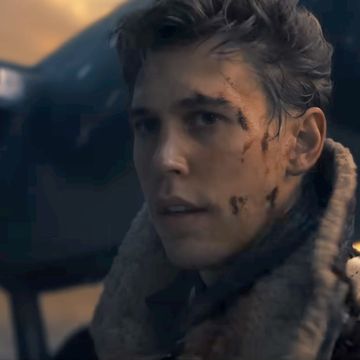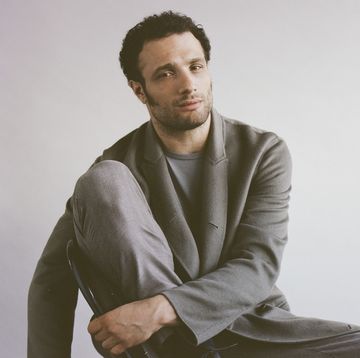The British Broadcasting Corporation. The BBC. The UK's public service broadcaster, primarily funded by us. Thus, it has certain unique standards and values to uphold and protect, deemed good for the sake of the nation over the decades.
Yet while many of the obscene and offensive things that it has outlawed over the years are common sense, there are certain occasions where they grabbed for the banning stick that it's hard not to stop and think, 'Eh?'
1. Most of our favourite songs pre-1990
Back in the early days of modern pop music, everyone from Cliff Richard to The Beatles to Frank Sinatra saw their songs banned by Her Majesty's BBC. In fact, the Beeb was known for scratching off songs left, right and centre. Any tune that could be deemed in any way controversial or 'ooh-er missus' was taken off air.
By the 1990s, of course, we were all enlightened and it took a real controversy like The Shamen's drugs-referencing 'Ebeneezer Goode' to see a song banned. So the decision to then ban an army of classic tunes due to the 1990 outbreak of the Gulf War was particularly strange.
Despite the blanket news coverage of mortars and missiles, we were deemed far too sensitive to hear any song that in any way referenced war or conflict – so a total of 67 songs were banned for the duration of the war.
Such prohibited songs included:
- ABBA – 'Waterloo'
- Queen – 'Killer Queen' and 'Flash'
- John Lennon – 'Imagine'
- Lulu – 'Boom Bang a Bang'
- Jona Lewie – 'Stop the Cavalry'
- Tears for Fears – 'Everybody Wants to Rule the World'
- Elvis Costello – 'Oliver's Army'
- Elton John – 'Saturday Night's Alright for Fighting'
No, we didn't make the last one up.
2. Star Trek
Trekkies have always been a target for the Beeb. The original Star Trek series had four episodes banned by Auntie at the time, because "they all dealt most unpleasantly with the already unpleasant subjects of madness, torture, sadism and disease".
If that sounds like the ingredients of a great night in to you, those episodes were: 'Whom Gods Destroy', 'Miri', 'The Empath', and 'Plato's Stepchildren' – the latter of which featured one of the first interracial kisses on television.
If all that fuss wasn't enough, it happened again in 1988, when the Beeb initially didn't air the Next Generation episode 'Conspiracy', which saw alien parasites taking over people's brains. A further episode, 'The High Ground', dealing with terrorism and having slight reference to Irish nationalism, was also nixed at first, before being aired in 2007.
3. M&S clothes
Just last month, a leaked email revealed that the BBC held strict dress codes for its journalists when hosting the news. This apparently included: a) no long hair for women; or b) any clothes from Marks and Spencer.
The rules were sent out to Beeb journalists in the South West, under the heading 'What to wear'. Other rules included dressing in plain colours, short hair and knee-length skirts, and a big no to sunglasses, shorts, sandals, T-shirts or anything with logos, like some upmarket pub that wants to charge you to watch the football.
Newsreaders were also advised to "steer clear of jewellery", while trainers must only be worn "if your story involves running" and flip-flops are reserved for anyone doing "a fun story on a beach".
It wasn't quite obvious why M&S, of all retailers, were the ones signalled out for such a blanket ban. But the BBC later said: "This informal advice was shared with a small number who appear on-screen about what does and doesn't work on camera or under TV lighting."
So that's us told, then.
4. Anything from 6pm to 7pm
Back when the UK only had one TV channel compared to the countless options we have today, the BBC made sure that there was one hour that would be left alone entirely: between 6 and 7pm.
This was known as the 'toddlers' truce', a period of time after children's programming where there was literally nothing on telly. Zip. Nada. It was thought that this would allow parents to get their kids to bed without the hypnotic pull of TV getting in the way.
However, when new guy on campus ITV arrived in 1955 in desperate need of advertising revenue, it noted how it wasn't all that fair that they weren't making any money for an hour every night, while the Beeb made up for it with the license fee.
Eventually, the government ended this sacred hour in early 1957, and the BBC ran a five-minute news broadcast at 6pm, followed by the not-quite-Top-of-the-Pops pop show The Six-Five Special on Saturday nights.
We kind of like the idea of a government-sanctioned zero TV distractions for an hour every day. If they extended it to the internet, we might actually get some work done.
5. James May saying 'cock'
After Jeremy Clarkson punched a producer, he was shown the door from Top Gear and his colleagues Richard Hammond and James May left with him to start Amazon's very well-received, but very-much-not-Top-Gear show The Grand Tour.
Because of this, the boys were not allowed to use certain items in their new show that could be considered TOO Top Gear-y. Most of these made sense – The Stig, Star in a Reasonably Priced Car – but they also banned James from saying his favourite curse phrase: 'Oh, cock'.
According to boss Andy Wilman, this actually happened. "It got a bit silly at the start point," he revealed. "It doesn't take a rocket scientist. There's no Stig, there's no track, there's no Dunsfold. What we wanted to protect was the films.
"It does get hilarious. You've got these meetings where it's like, 'Can James May still say cock or is the BBC going to sue?' James is then saying, 'I've always said cock!' It's win-win, as if we get sued for James saying cock, that'll be brilliant. They got funnier and funnier."














